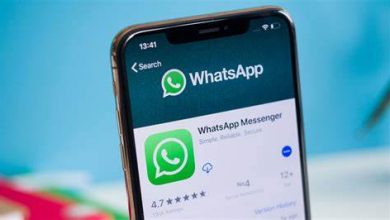How to prevent your phone from being hacked

1. Keep your operating system up-to-date. As soon as Apple or Android tells you an update is ready, download and install it. Many hackers take advantage of vulnerabilities in out-of-date operating systems. So Updates patch these holes and make your phone more secure.
2. Install security software on your Android phone. Do not download just any app. Read recommendations from trustworthy sources like Consumer Reports. If you want free, reliable protection, go with Avast, which provides security and malware protection. If you are willing to pay extra for heavy-duty protection, go for McAfee or Norton.
For the most part, the iOS software is difficult to hack. However, some versions might have vulnerabilities. The best you can do is update your software as soon as new versions are released and be careful which apps you can install.
3. Set a password. Pick something that is complex yet easy to remember. Avoid birthdays, pets’ names, bank PINs, or part of your phone number.
To set a password for your iPhone, choose a code that consists of six digits, four digits, or an alphanumeric code you set yourself.
For an Android phone, start at the menu button from the home screen. Tap “Settings,” then “Security,” and then “Screen Lock.” The actual words might be different depending on your phone’s brand name. Choose between Pattern Unlock, a personal PIN, or an alphanumeric password. After that, choose how long you want your phone to wait before locking.
4. Vet apps before installing them. Download apps only from a reputable seller or site, such as Apple’s App Store or iTunes. Be very careful if you use an Android phone. Google doesn’t vet its apps as carefully as Apple. Read reviews from Consumer Reports, Wired, or CNET before downloading any third-party apps.
5.Disable WiFi, Bluetooth and GPS when you’re not using them. They allow potential hackers to locate your phone with a simple scan.
6. Avoid sending personal information from your phone. Consider the absolute worst-case scenario of your smartphone being hacked, and then work back from that. Stop using the phone for confidential information of any sort. If you receive confidential information, delete it immediately after reading it
7. Don’t open suspicious emails. Merely clicking the link can give the sender a backdoor into your personal information. Delete the message immediately if you do not recognize the sender. If you do recognize them, hover over their name to make sure the email is legit. Webmail providers like Gmail will show you the sender’s name and email address.
8. Use caution with unsecured Wi-Fi connections. (Public wifis) Unsecured connections don’t have lock icons near their listings. Avoid them, if you can, and use your phone’s secure mobile connection. Secured connections have a lock icon, usually located across from the name of the network.
9. Don’t share too much personal info on social media. It’s okay to use your real name for networking, but leave it at that. Never provide your address, phone number, mother’s maiden name, etc. on your profile. Avoid even “safe” information like your favorite song or the book you’re currently reading. Hackers can use any of this information to hack you and steal your identity.
10. Be sure to change the default password that comes with your new phone to something more complex (resist the usual “1234,” “0000” and 2580)
This article was written by Daniel S. Opare Baidu, Focus 1 Group IT.




